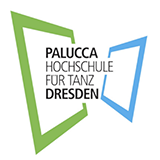Introduction
Palucca University of Dance Dresden is a public non-profit university in Dresden, Germany, focusing on dance education. It is also the only independent public dance university in Germany and is famous for cultivating dance talents with outstanding artistic talent and creativity.
Overview
Student size: about 170-200 students.
Course settings: The school offers bachelor's and master's degree programs in dance, dance education and other majors, as well as art master classes. Courses include ballet, modern dance, improvisation, etc., aiming to cultivate well-rounded, independent and creative dancers.
History and establishment time
The school was founded in 1925 by the famous dancer and educator Gret Palucca. Initially, classes were taught in her apartment and later rented training rooms in Dresden. From 1939 to 1945, the school was banned by the Nazi regime due to Gret Palucca's Jewish ancestry. The school reopened on July 15, 1945. In 1949, the school became a public school. In 1953, the construction of a new school building began and was completed in 1955. In 1993, the school was recognized as a higher education institution by the state of Saxony, and in 1999 it was allowed to add the word "university" to its name. In 2010, it was officially renamed Palucca University of Dance Dresden.
School Strength
Teaching Staff: The school's teaching staff is composed of experienced dancers, choreographers and educators from all over the world. They bring diverse perspectives and expertise to the classroom, and can provide students with high-quality teaching and guidance, helping students grow and develop in the field of dance.
Teaching Resources: The school has 11 dance studios, a library, costume department and sound studio and other complete teaching facilities, providing students with good learning and practice conditions. In addition, the school also works closely with famous dance companies such as Dresden Semper Opera Ballet and Forsyth Company to provide students with valuable professional opportunities and performance experience.
Institutional Nature
Public non-profit university.
Educational Philosophy
Emphasis on cultivating well-rounded, independent and creative dancers based on ballet, contemporary/modern dance and improvisation. Focus on interdisciplinary research, combine dance with other art forms such as architecture and film, encourage students to break through the boundaries of traditional dance, explore new ways of artistic expression, inherit and promote the development of dance art, and cultivate dance professionals with innovative spirit and artistic attainments.
Key laboratories and disciplines
The school's key discipline is dance, and no key laboratories have been found yet. The school focuses on the teaching and research of dance art, and has formed its own characteristics and advantages in dance performance, choreography, dance education, etc. Through systematic curriculum setting and practical teaching, it cultivates students' professional skills and artistic qualities in the field of dance.
Department
The school has teaching departments such as the Dance Academy, which provides related professional courses such as dance, dance education, choreography, etc.
Ranking
According to Edurank data, the school ranks 8439th among 14,131 universities in the world, 1973rd among 2785 universities in Europe, 294th among 369 universities in Germany, 16th among 19 universities in Saxony, and 6th among 7 universities in Dresden.
Expenses
Tuition fees: For EU citizens, tuition fees are free; for non-EU citizens, tuition fees for different courses are different, such as free tuition fees for bachelor's degree courses in dance, and 495 euros per semester for master's degree courses in dance education.
Semester fees: Students need to pay about 1000 euros per academic year. Semester fee in USD.
Campus
Campus location: Located in the center of Dresden, the campus is surrounded by important landmarks such as the Semper Opera House, Zwinger Palace and the Elbe River. Students can get close to the city's cultural heritage and immerse themselves in a strong artistic atmosphere.
Campus facilities: The campus has 11 dance studios, a library, a costume department, a sound studio and other complete teaching facilities, providing students with good learning and practice conditions. In addition, the school also has dormitories to provide students with on-campus accommodation convenience.
-

Heidelberg University
-

University of Freiburg
-

University of Jena
-

University of Marburg
-

University of Rostock
-

University of Halle-Wittenberg
-

University of Bayreuth
-

Leipzig University
-

University of Tübingen
-

Humboldt University of Berlin
-

Mesoamerican University
-

Istmo University
-

Mariano Galvez University of Guatemala
-

Regional University of Guatemala
-

Galileo University
-

Francisco Marroquín University
-

Rafael Landívar University
-

University of the Valley of Guatemala
-

University of San Carlos of Guatemala
-

Technological Institute of Tlaxcala Plateau
-

Golfo University
-

Technological University of South Sonora
-

Technological University of Huejotzingo
-

Tizimín Institute of Technology
-

Chilpancingo Institute of Technology

